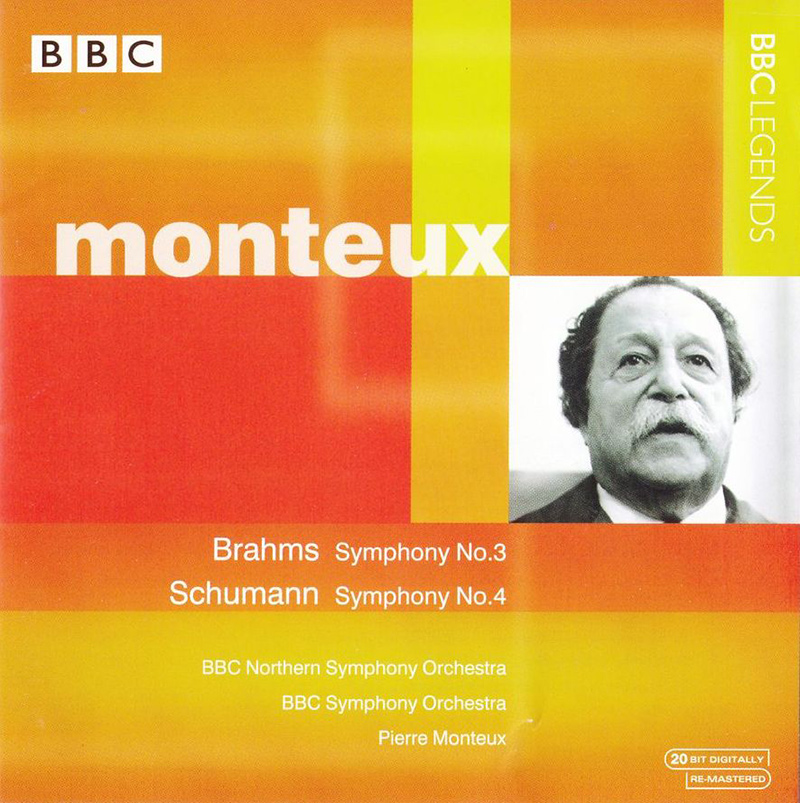Logowanie
Dziś nikt już tak genialnie nie jazzuje!
Bobby Hutcherson, Joe Sample
San Francisco
SHM-CD/SACD - NOWY FORMAT - DŻWIĘK TAK CZYSTY, JAK Z CZASU WIELKIEGO WYBUCHU!
Wayne Shorter, Freddie Hubbard, Herbie Hancock, Ron Carter, Elvin Jones
Speak no evil
UHQCD - dotknij Oryginału - MQA (Master Quality Authenticated)
Chesky! Niezmiennie perfekcyjny
Winylowy niezbędnik
ClearAudio
Double Matrix Professional - Sonic
najbardziej inteligentna i skuteczna pralka do płyt winylowych wszelkiego typu - całkowicie automatyczna
BRAHMS, SCHUMANN, ROSSINI, BBC Northern Symphony Orchestra, BBC Symphony Orchestra, Pierre Monteux
Overture L'Italiana in Algeri / Symphony No. 3 / Symphony No. 4
- Pierre Monteux
- Rossini: Overture L'Italiana in Algeri
- Brahms: Symphony No. 3
- BBC Northern Symphony Orchestra
- Town Hall, Manchester 21 November 1962
- Schumann: Symphony No. 4
- BBC Symphony Orchestra
- Royal Festival Hall, London 18 October 1961
- Pierre Monteux - conductor
- BBC Northern Symphony Orchestra - orchestra
- BBC Symphony Orchestra - orchestra
- BRAHMS
- SCHUMANN
- ROSSINI
Pierre Monteux, like Kempe, was a musician first and only: no tricks, deviations or tampering with the musical process – instead they had the ability to get to the music’s core and persuade orchestral musicians to give of their best. We all have our favourites and despite my praise, neither Kempe or Monteux quite make it into my (unwritten) list of maestri who have consistently delivered the goods over my thirty years of serious listening (I started young!). Yet, of course, I’ve heard some marvellous things from both (Kempe more than Monteux) and would certainly nominate this Kempe CD as containing outstanding examples of his art. The Monteux disc brings a Rossini overture that I find too careful and short on sparkle. While the recording allows us to hear Rossini’s trademark crescendi well enough, it also affords us Monteux’s over-emphatic, overloud cymbal-clashes, which smack more of the bandstand than the concert-hall. Monteux’s Brahms (like the Rossini recorded in Manchester’s Town Hall in November 1962) is admirable in it’s pacing but is a tad earthbound in encompassing Brahms’s world of freedom and happiness (’frei aber froh’ said the composer about the opening F-A flat-F motif). The playing is good if a bit too drilled – the BBC Northern Orchestra was not a ’symphony’ in 1962 and not as virtuosic as its present-day Philharmonic successor. Although the middle movements of this Brahms 3 have some warm and attractively curved expression, I’m afraid the whole did little for me. I must though record that there’s an obvious affection and commitment for Monteux from the Manchester-based orchestra; it is often reported that musicians loved playing for him. If Brahms 3 sounds a little weary, I wouldn’t want to worry about Monteux being 87 at the time because only a year earlier in the Royal Festival Hall he led a sprightly, energetic Schumann 4 with the BBCSO. It’s a reading full of expressional ebb-and-flow, and has a heart. I do find a lack of poise though and some of the ensemble is precarious, which leads to gabbled articulation. Nevertheless, the spirit is there and there’s a lot to enjoy in Monteux’s freewheeling approach. He has the measure of the music’s shape and direction (as he does the Brahms; first movement repeats are observed) and a further hearing is looked forward to. Yet, when it comes down to it, I simply don’t find myself on Monteux’s wavelength – those that do will surely find more than me in this CD’s contents.


































